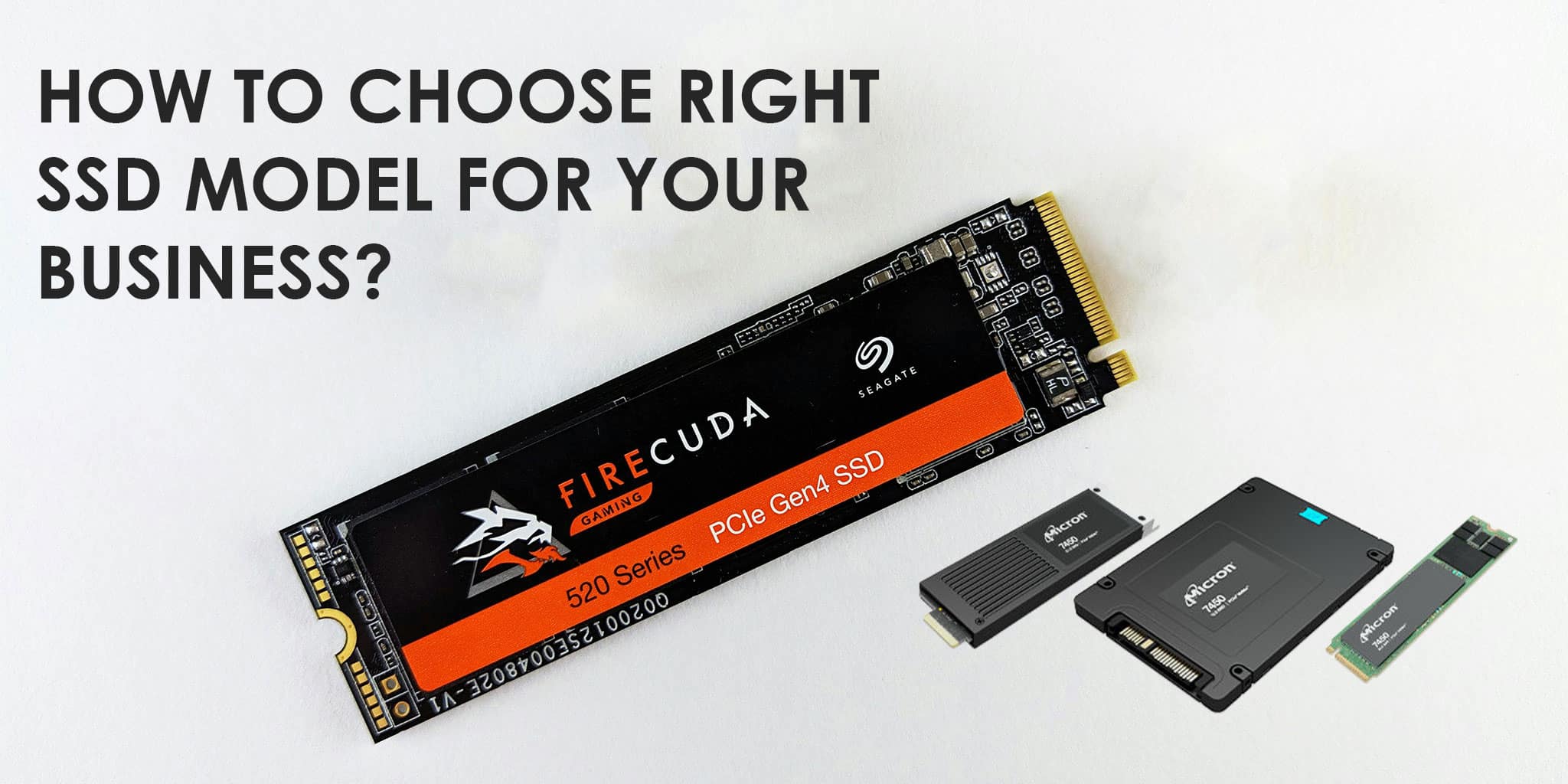How to Choose Right SSD Model for Your Business in 2025?

Introduction: Choose the Right SSD Model
In today’s fast-paced business environment, Choose the Right SSD Model storage solutions is essential for maintaining efficiency and competitiveness. Solid-State Drives (SSDs) have become a cornerstone of modern business technology, offering significant improvements over traditional hard drives in terms of speed, durability, and energy consumption. Whether you’re looking for enterprise SSDs for large-scale operations or high-performance SSDs to speed up your business workflows, understanding your options is critical. This article will help guide you through the process of selecting the right SSD for your business’s unique needs.
Understanding SSD Types: Choose the Right SSD Model
When exploring SSDs, it’s important to know that not all SSDs are created equal. There are several types, each offering different performance, capacity, and pricing tiers: Explore Right SSD Model
- SATA SSDs: The most common type, SATA SSDs offer significant speed improvements over traditional HDDs. They are a great option for businesses that are upgrading from HDDs but don’t need the fastest data speeds.
- NVMe SSDs: NVMe (Non-Volatile Memory Express) SSDs are faster than SATA models, making them suitable for businesses that need faster read/write speeds for high-demand applications. These are the go-to choice for businesses requiring top-notch performance for heavy data operations.
- M.2 SSDs: M.2 drives come in both SATA and NVMe variants. The M.2 NVMe models offer even faster speeds, and their compact size makes them ideal for businesses that need a high-performance storage solution without sacrificing physical space.
Each SSD type comes with its own set of benefits. Choosing the right one will depend on your business’s specific storage needs, available budget, and desired performance.
Why SSDs Are Essential for Business Operations:
Businesses today handle an immense amount of data, which needs to be stored securely and accessed rapidly. Right SSD Model SSDs offer a range of benefits that make them ideal for business storage solutions:
- Right SSD Model Speed: SSDs dramatically increase read and write speeds, making operations smoother and more efficient. This is particularly valuable for businesses that work with large files or run resource-heavy applications.
- Right SSD Model Reliability: Unlike traditional hard drives, SSDs have no moving parts, reducing the risk of mechanical failure and increasing reliability.
- Right SSD Model Energy Efficiency: SSDs use less power than traditional hard drives, which can help businesses lower their energy consumption and reduce operational costs.
- Right SSD Model Durability: SSDs are less susceptible to physical damage due to their lack of moving parts, making them a more durable option for business environments.
Choose the Right SSD Based on Business Needs:
Different businesses require different types of SSDs. Here’s a breakdown of what might work best for various business needs:
- Enterprise SSD for Large-Scale Data Operations: If your business operates at a large scale or handles mission-critical applications, an enterprise SSD might be the best option. These SSDs are designed for high-performance environments and can handle constant workloads, providing fast data access for a large number of users.
- Performance SSD for Speed: For businesses focused on speed and performance, such as those involved in video editing, software development, or other high-demand operations, performance SSDs are a necessity. They offer extremely fast read/write speeds, reducing bottlenecks and ensuring smooth operations.
- General Business Storage Solutions: For everyday office use, including document storage, emails, and basic software applications, a standard SATA or consumer-grade SSD could be a cost-effective solution. These drives provide sufficient speed and durability for less demanding applications.
Key Factors to Consider When Choosing an SSD:
When selecting an SSD for your business, several key factors should be taken into account: Right SSD Model
- Performance: The speed of the SSD, measured in read/write speeds, should align with your business needs. For intensive applications, prioritize high-speed NVMe or M.2 drives.
- Durability: Depending on the type of operations your business engages in, consider the endurance rating of the SSD, particularly for write-intensive workloads.
- Capacity: The amount of storage needed will depend on your data requirements. For small to medium businesses, a 500GB to 1TB SSD might suffice, while larger enterprises may require several terabytes of storage.
- Price: While SSD prices have dropped, higher-performance models, such as NVMe and enterprise SSDs, come with a higher price tag. It’s important to balance performance with your budget.
- Compatibility: Ensure the SSD is compatible with your current business systems, including the motherboard and interface (SATA, NVMe, etc.).
Top SSD Brands for Businesses:
When choosing an SSD, it’s also important to consider the brand and the level of support they offer for business-grade solutions. Some of the top brands in the enterprise and performance SSD market include:
- Samsung: Known for its high-performance SSDs, particularly in the NVMe space, Samsung offers reliable storage solutions for businesses.
- Western Digital (WD): WD offers a wide range of SSDs suitable for various business needs, from budget-friendly models to high-end enterprise solutions.
- Intel: Intel SSDs are widely recognized for their enterprise-level performance and reliability.
- Crucial: Crucial offers competitive pricing with excellent performance, making it a popular choice for small to medium businesses.
- Seagate: Seagate provides a range of SSDs known for both performance and durability, especially for business and enterprise environments.
Conclusion:
Choose the Right SSD Model for your business involves understanding your specific needs, whether that’s enterprise SSDs for large data operations, performance SSDs for high-speed workflows, or general business storage solutions. By considering key factors like performance, durability, capacity, and compatibility, you can make an informed decision that enhances your business’s efficiency and overall performance. Investing in the right SSD will not only boost your company’s productivity but also provide long-term reliability for your data storage needs.


